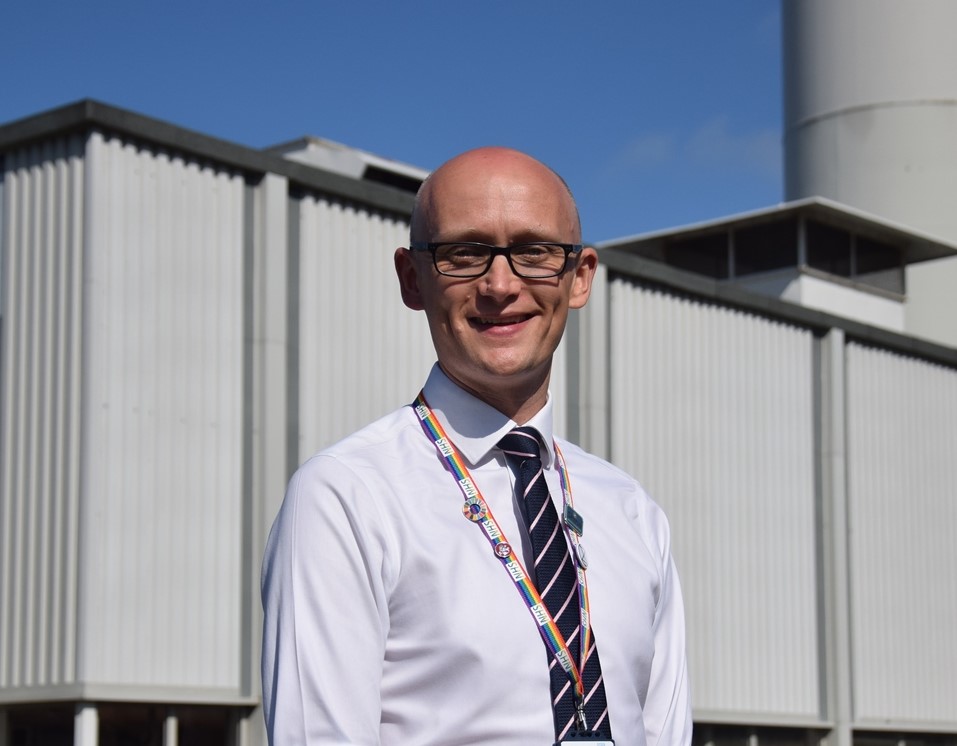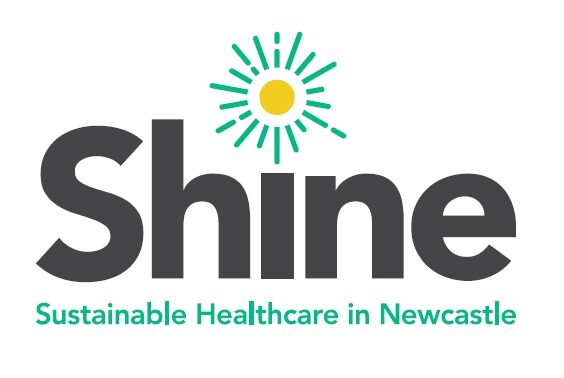James Dixon, associate director for sustainability at Newcastle Hospitals, talks about how strategies to reach Net Zero Carbon are not only addressing the climate and health emergency but also influencing the delivery of patient care.

The need for sustainability and climate change action has never been stronger or more urgent.
More challenges than ever are affecting our society and planet, including adverse weather, spiralling energy prices and the cost-of-living, so the creation of new sustainable initiatives is critical to mitigate or prevent further pressure.
The NHS is in a prime position to drive forwards the climate action agenda as we are a significant contributor, producing 5% of the UK’s carbon footprint.
We also know that harm caused by the climate crisis and air pollution is affecting the people we look after.
Poor air quality is the largest environmental risk to public health in the UK, and the 4th largest killer (behind cancer, dementia and cardio vascular disease) as long-term exposure can cause chronic conditions such as cardiovascular disease, respiratory diseases like asthma and lung cancer, leading to reduced life expectancy, as well as potentially contributing to and exacerbating other illnesses such as dementia. Whilst heat waves and air pollution affects everyone, we know there are inequalities in exposure and the greatest impact is on the most vulnerable.
Increasingly extreme and erratic weather also impacts on our capacity to delivery care, as flooding can reduce the speed of ambulance response, extreme snow and ice can impact on staff and patient travel to hospital and heatwaves can lead to pressures on our air handling units, with theatres becoming too hot to operate in.
Office of National Statistics figures show warmer weather and prolonged heatwaves cause an increase in hospital admissions for the NHS – for every one degree rise there is a one percent increase in the number of people coming to accident and emergency.
It is now three years since Newcastle Hospitals became the first healthcare provider in the world to declare a climate and health emergency, publicly acknowledging the link between the health of our planet and our work as NHS organisation – there is no human health without planetary health.
We committed to fast track a reduction in our carbon emissions and pledged to reach net-zero at the pace scientists tell us it is needed. To limit global temperature increases, society needs to cut emissions now.
At Newcastle Hospitals we’ve overseen many examples of action over the last ten years including: reducing the volatile gases that we use in theatre, introducing meat free Mondays across our canteens, sending zero waste to landfill, using environmentally-friendly gas and air in our maternity suites, becoming the first in Europe to use reusable sharp boxes and significantly reducing the carbon impact of sharps waste, introducing an app-based initiative for staff to record sustainable actions, significantly reducing car journeys, transporting medical records and documentation by e-bike between our sites and working closely with our whole supply chain to analyse and tackle carbon emissions.
This work with our supply chain has involved developing a multi-award-winning five-step framework to engage the companies we buy from in achieving net zero. So far, over 750 suppliers have responded and almost 90% of them pledged support to help us achieve net zero carbon goals.
We are also informing the regional approach of health and care organisations, working closely with the new integrated care system for the North East and North Cumbria on an ambition to be the greenest region in England by 2030, through tackling the climate emergency.
Along with partners we have explored the challenge of air pollution in the North East and North Cumbria and looked at opportunities for improvement, presented in the ‘Levers for Change’ report.
Together we then developed and tested a clean air framework for the region and subsequently the UK’s first ever clean air action plan covering an integrated care system. This short video explains the importance of this work and the need to adopt this action-based toolkit in other regions.
We are making progress but our emissions are not reducing fast enough. We need to do more, and faster, to reach our net zero carbon target, for the emissions we control, by 2030, and for the emissions we influence, such as our supply chain, by 2040.
Case study – Net zero supply chain
Newcastle Hospitals has developed a healthcare-specific version of the SmartCarbon calculator platform, providing a basis for measuring, reporting and reducing carbon footprint – including the impact of the full supply chain, which represents over 60% of the organisation’s overall carbon footprint – setting a goal to reach net zero by 2040.
The procurement carbon footprint was previously calculated using carbon factors for financial spend in different categories. This method makes it impossible to reach net zero without reducing spend to zero and didn’t reflect the carbon performance of the supplier, so it was vital to establish a more accurate measurement.
Working in partnership with SmartCarbon Ltd, Newcastle Hospitals supplies and procurement team developed a five-step supply chain framework, to engage and support suppliers, from smallest to largest.
Suppliers were asked to complete a questionnaire, which showed 98% of respondents supported the net zero goal.
Webinars were then arranged to raise awareness and engagement, which included case studies and sharing best practice.
Suppliers were invited to report their performance directly, via the SmartCarbon calculator platform and required to commit to net zero targets aligned with Newcastle Hospitals’ ambition.
Suppliers were encouraged to act and reduce their footprints to the greatest possible extent and then consider offsets for the remaining emissions.
This initiative has enabled Newcastle Hospitals to recalculate the base year and accurately report carbon emissions, as well as identify hotspots to focus carbon reduction efforts.
Nationally, the development of the bespoke SmartCarbon calculator has not only been of huge benefit to the healthcare sector, but has also been replicated for other sectors, e.g. local authorities, universities and the construction industry.
The team has won the NHS Sustainability Partnership Award and the Academic Health Science Network Innovation Award for the net zero supply chain project, as well as the prestigious Health Service Journal Towards Net Zero award for their overall Shine programme, which includes the net zero supply chain project.

